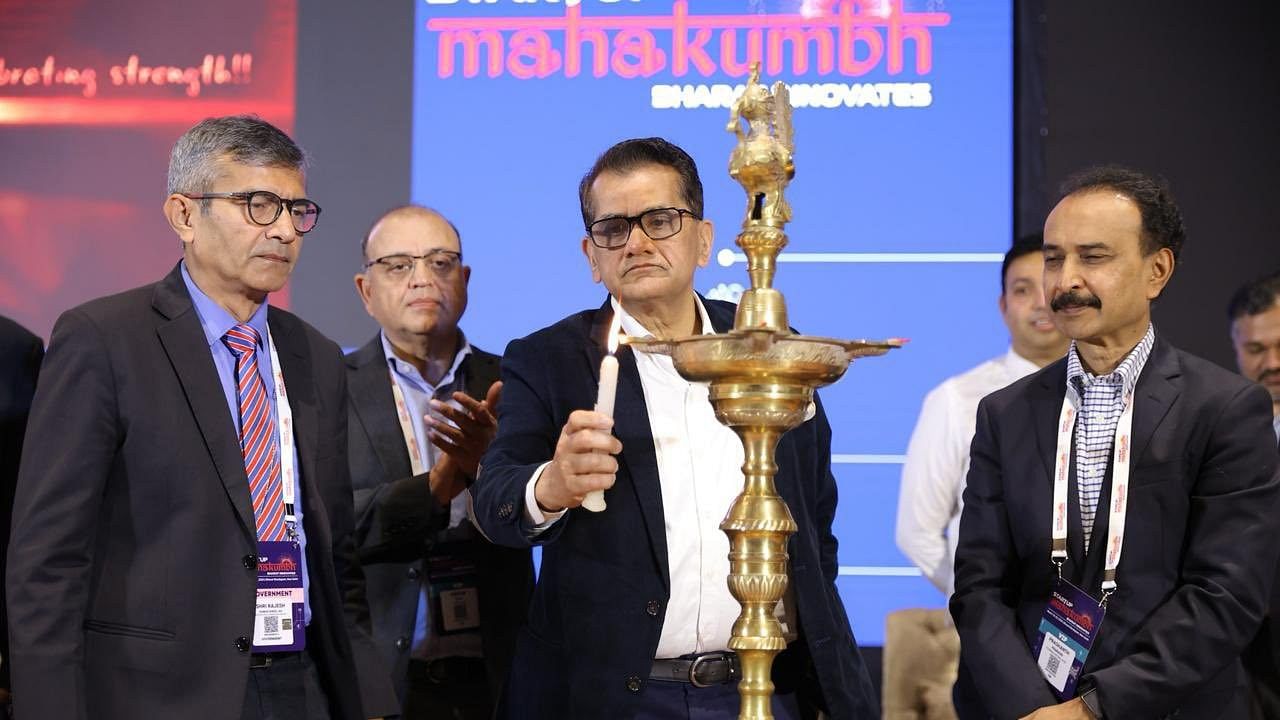
Amitabh Kant at the inauguration of the ‘Startup Mahakumbh’.
Credit: X/Amitabh Kant
New Delhi: A national deep tech policy, which seeks to provide a comprehensive framework to address the challenges faced by high-end technology startups, is in the final stage of inter-ministerial consultation, Department for Promotion of Industry and Internal Trade (DPIIT) secretary Rajesh Kumar Singh said on Monday.
“The Government of India is in the process of creating a separate dedicated deep tech startup policy,” Singh said at the inaugural event of ‘Startup Mahakumbh’.
He further added that the “policy paper is in the final stages of inter-ministerial discussion.” “We hope to bring it forward soon,” DPIIT secretary said.
As per a draft of the national deep tech startup policy released last year, the policy aims to make substantial contributions to India’s GDP by boosting high-tech exports, enhancing economic competitiveness, and fostering self-reliance.
It also underscores the positive impact of deep tech in improving the living standards of society, addressing critical areas such as food security, healthcare, water management, energy, transportation, and tackling the challenges of climate change, sustainability, and national security.
Deep tech is a buzzword in technology and startup circles. Though there is no precise definition, deep tech broadly refers to advanced technologies, a lot of which may still be under development but have the potential to trigger disruptive changes in the future.
“What really matters in startups is its ability to commercialise and develop intellectual property rights (IPR). It’s not enough to only innovate, you should be able to convert it into IPR which is of long-term benefit to the country and to yourself,” DPIIT secretary said.
“Deep tech and extensive research and development would be the answer to that,” he added. While a non-deep tech startup typically relies predominantly on the business model as its differentiating factor, a deep tech startup involves early-stage technologies based on scientific
or engineering advancements, which are yet to be developed for any commercial applications.
DPIIT secretary said the government is also working to create a “dedicated fund-of-funds” to support deep tech startups.
India’s G20 Sherpa Amitabh Kant also underlined the importance of ‘fund-of-funds’ in development of startups. “We will need a big deep tech fund of funds, which will deploy resources into alternate investment funds.”
On regulations, Kant said the startups must adhere to a self-regulating ecosystem to bring in transparency and ethical behaviour as government regulation generally stifles innovation.
“All of you entrepreneurs are innovators. As you grow and expand, you must ensure that there is proper financial management and a proper audit. Self-regulation is the key,” Kant said addressing the startup entrepreneurs.
More than 1,000 startups along with numerous investors and incubators are participating in the three-day ‘Startup Mahakumbh’ event that began in the national capital on Monday.